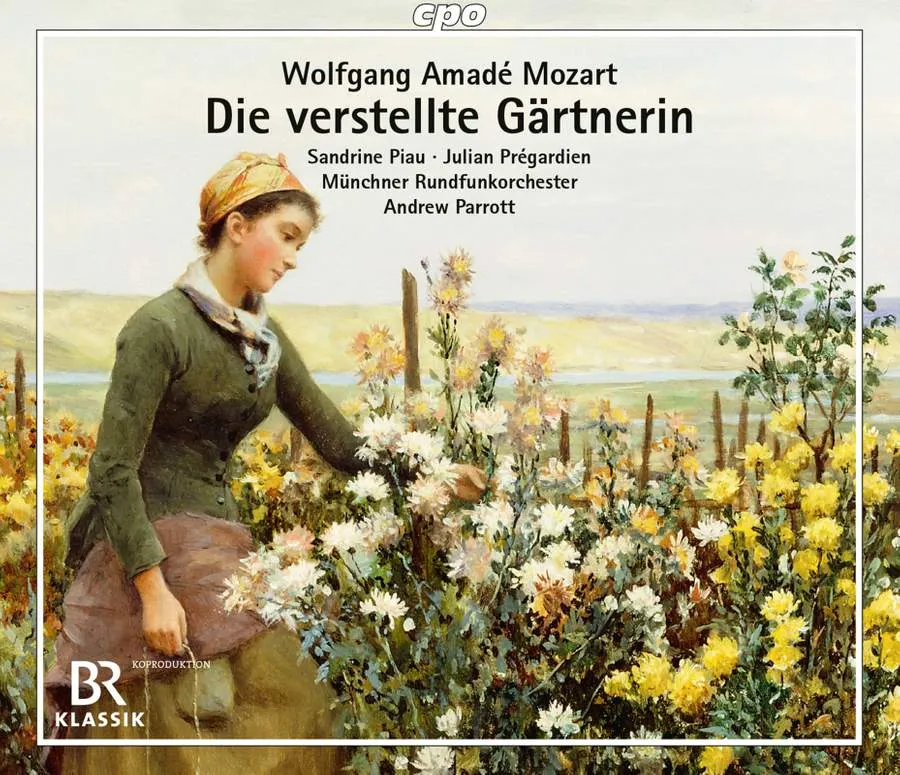
Mozart Die verstellte Gärtnerin (La finta giardiniera – sung in German) Sandrine Piau, Wolfgang Ablinger-Sperrhacke, Julian Prégardien, Lydia Teuscher, Olivia Vermeulen; Munich Radio Orchestra/Andrew Parrott CPO 555 386-2 188:07 mins (3 discs)
Mozart was just 18 when in 1775 his opera buffa, La finta giardiniera (a possible translation might be The Gardener is Not What She Seems) had its premiere in Munich. With just three initial performances in Italian, it subsequently took off in German translation five years later when Mozart himself adapted it into a Singspiel, swapping the simple recitatives for spoken dialogue.
Various translations, in fact, were made: this initial one is entitled Die verstellte Gärtnerin (The Disguised Gardener) as opposed to the later, more commonly met with Die Gärtnerin aus Liebe (The Gardener out of Love). Either way, there’s more to the piece than those who write it off as an immature work might think. Serious issues lie behind it, and in a performance as well sung as this its worth is evident. The finales are particularly strong – the second a kind of communal ‘mad’ scene.
The sufferings of the disguised Violante are finely captured by Sandrine Piau, while the complexities of her errant (and at one time violent) lover Belfiore are well realised by Julian Prégardien with real bel canto grace. Wolfgang Ablinger-Sperrhacke’s Mayor is light and witty rather than merely buffoonish. Similarly, Michael Kupfer-Radecky’s Nardo is a fully realised character, perfectly matched by Lydia Teuscher’s spirited Serpetta. Olivia Vermeulen is an expressive Ramiro, while Susanne Bernhard’s full-bodied soprano delineates Arminda skilfully. Andrew Parrott’s conducting could do with more impetus at times and it’s annoying that the recorded dialogue has been excluded from the booklet.
George Hall